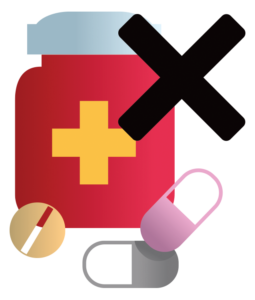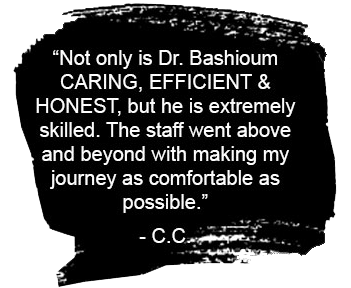To-Do List Before Cosmetic Surgery
February 8th, 2022
Patient Reflections on To-Do List Before Cosmetic Surgery
Patient writes, “ I just received my packet from Bashioum Cosmetic Surgery Center with my pre-op (before surgery) instructions. It was great that it came about 4 weeks before surgery, so I have time to read it over a couple times. Dr. Bashioum outlines everything in detail and it really helped to calm my nerves. It includes what I need to do at least 2 weeks before surgery to ensure that I receive the best care.
First, I need to set up a History and Physical appointment with my primary care physician, to make sure I am in good health. Dr. Bashioum wants to provide exceptional quality medical care and this step helps to rule out any health issues that might affect the surgery and my result. My instructions also list several medicines to avoid before surgery and anesthesia.
One of the things that I did not even think about is when I should shower before surgery and what to wear on the day of surgery. Most of my questions seem to have been anticipated and are answered in my instructions. There is also an entire page that explains what goes on in the operating room and the recovery room. I feel very confident that if I read through the packet a couple more times, I will be well prepared for what to expect during surgery and be ready for my tummy tuck! If I still have questions, they encourage me to call the office for my own peace of mind.” In addition, Dr. Bashioum also calls his patients the night before surgery and the following night to check in with them after surgery.
Safety Tips Before Cosmetic Surgery: Avoid Aspirin
March 20th, 2019
Patient preparation for surgery is essential to make the post-operative course of recovery safer for patients.
Stop all aspirin and NSIDs, unless specifically directed otherwise by your surgeon. Also disclose any over the counter medications, vitamins, and prescription medications you are taking prior to your surgery, including tobacco products. Both aspirin and NASIDs affect platelet function in the blood. The result is a reduced ability to clot the blood when tissue is divided in surgery. This can lead to unwanted bleeding and bruising after surgery. These effects last for two weeks. Stop taking these medications two weeks before surgery. Some other medications and tobacco products cause complications either during surgery or in the healing process. This recommendation includes some herbal remedies, so always check with your surgeon.


